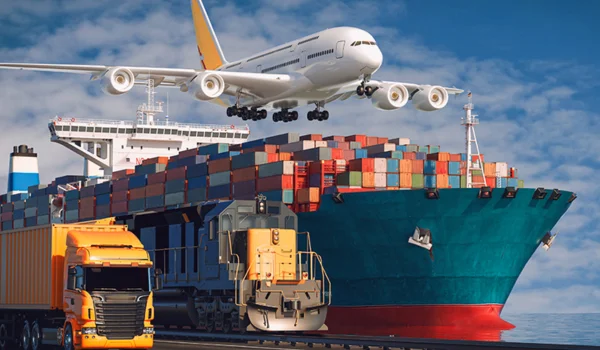In today’s interconnected world, no nation operates in isolation — especially when it comes to trade. For India, one of the fastest-growing economies, international trade is a key driver of economic growth. However, the success of Indian exporters depends not only on their products and competitiveness but also on how well they navigate global trade laws. These international regulations play a vital role in shaping market access, pricing strategies, and compliance requirements for Indian export businesses.
Understanding Global Trade Laws

Global trade laws are a set of international agreements, treaties, and rules that regulate trade between countries. The World Trade Organization (WTO) is the main global body that formulates and enforces these trade laws. Apart from WTO agreements, several regional and bilateral trade pacts—such as the ASEAN-India Free Trade Agreement (AIFTA) and India’s trade deals with the UAE and Australia—impact how Indian businesses export goods and services abroad.
These laws cover a wide range of areas including tariffs, subsidies, intellectual property rights, dispute resolution, environmental standards, and labor practices. For Indian exporters, understanding these frameworks is essential to ensure smooth trade operations and to avoid penalties or trade restrictions.
Impact on Indian Export Businesses
- Market Access and Tariff Regulations
Tariffs and customs duties are among the most direct ways global trade laws affect Indian exporters. WTO rules and bilateral agreements determine the tariff rates imposed on Indian goods in foreign markets. Favorable trade pacts can significantly reduce duties, making Indian products more competitive abroad.
For example, under the India-UAE Comprehensive Economic Partnership Agreement (CEPA), many Indian goods enjoy zero or reduced customs duty. This boosts exports in sectors like textiles, gems, and engineering goods. Conversely, unfavorable tariff structures or protectionist policies in other countries can limit access and increase costs for Indian exporters.
- Quality, Safety, and Environmental Standards
Global trade laws also emphasize product quality and compliance with environmental and safety standards. Exporters must ensure their goods meet international specifications such as ISO certifications, packaging norms, and environmental safety requirements like REACH in the European Union.
Failure to comply can result in rejection of shipments, penalties, or even long-term bans. This pushes Indian exporters to maintain high production standards, adopt sustainable practices, and invest in quality assurance systems. While this raises operational costs, it also enhances credibility and access to premium markets.
- Intellectual Property Rights (IPR) Protection
Intellectual property protection is another critical aspect governed by global trade laws, particularly under the WTO’s TRIPS Agreement (Trade-Related Aspects of Intellectual Property Rights). Indian exporters dealing in branded goods, pharmaceuticals, or technology must ensure that their products respect IPR norms in destination countries.
At the same time, these laws safeguard Indian innovations and brands from counterfeiting abroad. For example, protecting Indian Geographical Indications (GIs) like Darjeeling Tea or Pashmina Shawls ensures exclusive identity and premium pricing in global markets.
- Anti-Dumping and Safeguard Measures
Many Indian exporters face challenges due to anti-dumping duties imposed by importing countries. These duties are levied when a country believes that Indian goods are being sold below market value, harming local industries.
Global trade laws provide mechanisms to challenge such measures through the WTO’s Dispute Settlement Body. India has successfully contested several cases, helping exporters regain fair market access. However, exporters must maintain transparency in pricing and documentation to avoid such disputes.
- Influence of Trade Sanctions and Geopolitical Factors
Global political dynamics and trade sanctions also influence Indian export performance. For example, U.S. or European sanctions on countries like Russia or Iran affect Indian exporters indirectly if they trade with these regions. Exporters need to stay updated on evolving trade restrictions to avoid legal complications.
This is where reliable business information platforms like businessscroller.com play a valuable role by offering updates and analysis on international trade laws, helping Indian exporters make informed decisions.
- Digital Trade and E-Commerce Regulations
With the rise of digital exports and e-commerce, new global trade norms are emerging around data privacy, digital taxation, and cross-border payments. Indian IT and service exporters must comply with these evolving digital trade rules, such as the EU’s GDPR or the OECD’s framework on digital taxation.
These regulations influence not only how Indian firms deliver services but also how they store data and price their offerings globally.
Adapting to the Global Trade Environment
To succeed in the global market, Indian exporters must stay proactive. Key strategies include:
- Continuous Compliance: Keeping up with updates in trade policies and certification requirements.
- Diversified Markets: Reducing dependency on a single region to mitigate geopolitical risks.
- Leveraging Trade Agreements: Taking advantage of preferential trade deals and government export incentives.
- Legal Awareness: Consulting trade law experts or following trusted resources like businessscroller.com to stay informed about international legal developments.
Conclusion
Global trade laws are both an opportunity and a challenge for Indian exporters. While they create a framework for fair and transparent trade, they also demand strict compliance and strategic planning. For India’s export-driven sectors—ranging from textiles and engineering to IT and pharmaceuticals—understanding these laws is no longer optional but essential.
By aligning with international legal standards and leveraging trade agreements effectively, Indian businesses can strengthen their position in the global marketplace, ensure long-term growth, and contribute significantly to India’s vision of becoming a leading global trading power.

